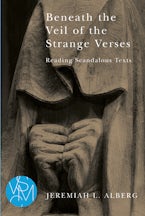Looking beneath the surface of violence to its hidden motives in our disavowed desires is as difficult as it is necessary and neglected, and even forbidden as scandalous, especially in our age of culture as spectacle. Jeremiah Alberg musters some of the subtlest intellectual resources from Plato and Dante to Nietzsche, Rousseau, and Girard in order to courageously undertake this indispensable task. He adroitly leads us to read the revelation beneath the veil of these and other (notably Flannery O’Connor’s) “secular scriptures.”
—William Franke, Professor of Comparative Literature, Vanderbilt University
What is the relationship between looking, reading, and scandal? Alberg answers with a subtle, thoughtful, and finally stunning meditation on the work of Nietzsche, Rousseau, and Flannery O’Connor. Beginning with Plato’s story of Leontius, who is torn between fascination and disgust at the corpses lying before the executioner, Alberg argues we feel both attracted and repelled by what we see when we read literature; we are “scandalized” by it. Using René Girard’s insights to show how great literary texts lead us to look beyond scandal and beneath the surface of violence, Alberg offers us, finally, a new theory of reading—what he dubs a “hermeneutics of forgiveness.”
—Sandor Goodhart, Professor of English and Jewish Studies, Purdue University

